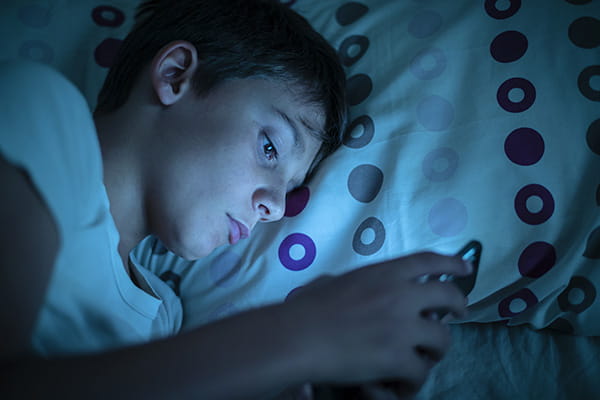Investigating How Sleep Impacts the Health and Well-being of Youth
The Beebe lab investigates how getting too little sleep or sleep that is poorly timed impacts the health and well-being of youth. The lab focuses especially on adolescents, who often get far less than the recommended 8-10 hours of sleep on school nights. Some of the lab’s work is observational, studying how things are related naturally, without manipulating anything. However, its biggest contributions have been from clinical trials that examine the impact of experimentally induced changes in sleep. By using experimental methods, the lab can truly test cause-and-effect relationships in a way that observational studies cannot.
We mostly work with healthy adolescents but have collaborated with teams who have studied special populations, including youth with ADHD, asthma, diabetes, and arthritis. Our lab has pioneered several different research approaches, such as:
- Inducing realistic “doses” of short-sleep and comparing them to a healthy sleep duration.
- Examining the impact of interventions designed to improve sleep duration amongst youth who typically get too little sleep.
- Manipulating sleep schedules to compare the effects of highly variable sleep patterns versus more stable, consistent sleep schedules.
- Testing whether the benefits of getting more sleep depend on when that sleep happens, and how well it matches with a person’s internal clock (“circadian phase”).
So far, we have shown that short sleep—at levels commonly seen in adolescents on school nights—causes or contributes to the following:
- Sleepy: While it might seem obvious, feeling sleepy all the time is not only unpleasant, it’s bad for you.
- Surly: Adolescents are sometimes stereotyped as “moody.” Our data suggest that might be due to getting too little sleep. The problem isn’t personality, it’s sleep deprivation.
- Spacey: If you can’t pay attention, you can’t learn, relationships get harder, and you’re even at risk for getting hurt. Getting too little sleep—even “normal” levels of too little sleep—hampers attention.
- Scary on the Road: Probably related to inattention, inadequate sleep contributes to poor driving. Again, adolescents are stereotyped as bad drivers. Some of that is due to inexperience. But some is due to inadequate sleep.
- Sedentary: When adolescents cut back on their sleep, they don’t fill that “free time” with healthy physical activity. Instead, they sit around, which has far fewer health benefits than the sleep they lost.
- Sugared up: Getting too little sleep leads adolescents to eat badly, especially foods that are high in sugar.
- Somatic/sore: Aches and pains become more common when adolescents get too little sleep. We have even shown that experimentally induced short sleep creates symptoms that overlap with those from concussion… without ever hitting one’s head.
- A bit less smart: Sleepy adolescents don’t learn as well, which is one of the reasons why late-night “cramming” is a bad idea.
Many of the issues we’ve identified—indeed, all of those we’ve examined so far—improve when adolescents who typically get insufficient sleep increase their sleep duration. As it turns out, how much an adolescent normally sleeps is a poor reflection of how much sleep they need. Short sleepers would perform better and experience fewer problems if they got more sleep.
Also, many of these effects are also true of adolescents with sleep disorders, such as obstructive sleep apnea. Although more research is needed, having a sleep disorder, getting poor quality sleep, and not getting enough sleep seems to lead to many of the same problems.





